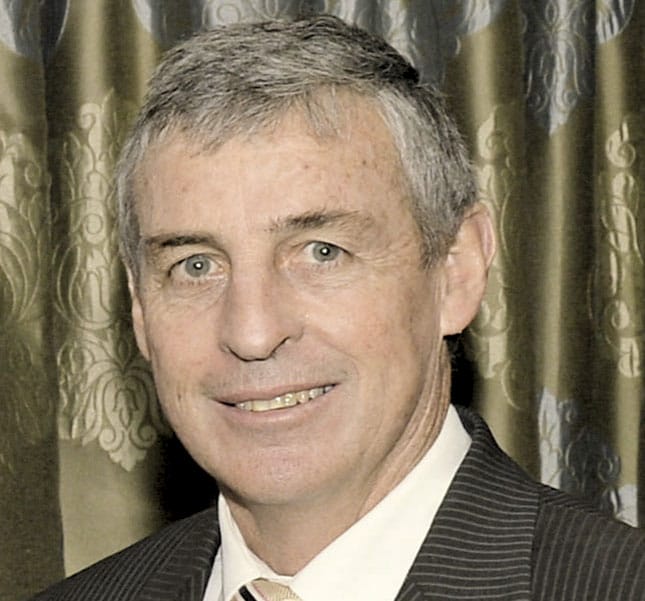
Photo: Supplied
The Predation Management Forum (PMF) represents the red meat, wool, mohair and wildlife industries at national level. Officials from the Department of Agriculture, Forestry and Fisheries as well as those from the Department of Environmental Affairs – both national and provincial – are invited to promote liaison on legislative matters.
READ:Are worms troubling your horse?
An agreement between the NWGA and the Red Meat Producers’ Organisation (RPO) provides a framework for wool growers to be responsible for predation matters and the RPO to attend to stock theft matters. For this reason, the chairmanship of the PMF lies within the NWGA.
Where do you farm?
On the farm Witfontein in the Fraserburg district in the Northern Cape. I farm mainly Merinos.
What impact does the PMF have on the ongoing fight against predators?
It’s difficult to measure its impact. The PMF has to influence the legal process and create a more producer-friendly environment. The fight against predators has existed for more than 100 years, and will continue in the future because it’s part of nature. The PMF is a forum where problems regarding predation can be discussed by different role players. If one takes this into account, the organisation has done a lot of work to influence certain processes.
Is there enough support for the forum from the people on the ground and if not, what can be done to change this?
The critical situation with predators at farm level has resulted in a lot of support for the PMF. But what is expected of the organisation outweighs what has been achieved at this stage. Farmers must realise that the PMF is not responsible for killing predators on farms, but for helping to influence policy and legislation, as well as keeping everyone informed on new methods of control.
What do you think are the major challenges facing the PMF?
Working together as different groups with different opinions to get practical, workable solutions.
Are you happy with the relationship between the police and farmers? Is there room for improvement?
Yes we are. But there is room for improvement, as there would be in any other relationship.
What do you think about the negative approach of animal welfare organisations, especially regarding the use of traps to catch predators?
Animal welfare organisations are quick to respond to farmers’ activities regarding predation, but they are not consistent. Take other animals who are problematic, for example. If a shopkeeper has problems with mice, he’d do anything to prevent them from causing damage. If there’s an ant plague, any household would do the same to control the problem. So why is there a negative focus on predator control? Ants, mice, jackal or any other living creature are part of an ecosystem and we, as farmers, experience this because we live closer to nature than most people.
We don’t kill predators because it’s a sport or for the fun of it. We’re merely defending our stock. Our farming businesses are more and more under pressure because of land claims, input costs, uncertain rainfall and big losses because of predators. We have the constitutional right to defend our properties and stock. We don’t have time to discuss or explain why we have to control predators.
What about the cruelty in the way our animals are killed? Sheep suffer serious wounds while bleeding to death, and lambs end up with with half-eaten rumps. Our job is to produce food for the country and take care of our families and stock. This is what keeps us going.
What impact will the coming Predation Management Information Centre (PMIC) have on predation management? What will its main role be?
The main role of the PMIC will be to gather information and give advice. The ideal will be a 24-hour call centre with the expertise to service different areas and provide the right advice in the shortest possible time. With the question-answer
scenario, it will also be possible to build a reliable database. That means expert advice on a specific topic will be available countrywide, and on short notice. There’ll also be a list of people to give practical help when needed. Finances, however, will be a challenge. Without help from the government, the availability of finances in the producer organisations will determine the service.
With losses running at more than a billion rands every year, how can farmers help to drastically reduce the killing of stock by predators?
According to figures supplied by the University of the Free State, losses in the smallstock sector run at over R1,4 billion per annum. This is not only a loss for farmers, but a 14% VAT loss for government. This makes it difficult to understand why government lacks interest to help solve this problem.
Figures from the 35 NWGA monitor farms show an average loss of 25% for farmers who didn’t make use of control. These losses decreased to as low as 4% where predator management took place. This shows that the implementation of a good control programme, such as the one designed by [predator control expert] Niel Viljoen of NWGA, is the answer.
However, everyone must be committed for an area to achieve success in predator control. There are various methods to control predators and it’s necessary to be informed and trained on how to use all of them in conjunction with one other.
Nature Parks has a responsibility to control numbers in parks as well, and also to see that the fencing is up to standard. The expansion of the SKA [Square Kilometre Array] in the Northern Cape is also a big concern to the farmers around the province. We must find solutions to control predators in such areas.
What do you want to achieve as chairperson of the PMF?
The PMF was established following a need to prevent a disaster. I alone don’t have the knowledge, but I’m surrounded by experts who have the knowledge and the courage to take this process forward. I’m now in the position to take forward this process that was established by the smallstock industry under the leadership of the NWGA. As chairperson, I want to speed up processes, to have good communication, to put the new proposed structure – the PMIC – in place and to make it operate to the best of our ability with the little time we have. Negotiations with the government will be high on the agenda, but lack thereof will not restrict us from reaching our goals.
I urge farmers to pay special attention to the statement below by [poison control expert] Dr Gerrit Verdoorn: “What is of grave concern is the illegal use of pesticides and other poisons such as sodium monofluoroacetate by livestock and wildlife owners to kill predators.
Despite a concerted effort by the livestock industry – driven by the Predation Management Forum – to offer farmers alternatives to poisoning predators, some individuals do not heed warnings to refrain from illegal use of pesticides and poisons. Provincial conservation agencies have warned that the liberal distribution and use of sodium monofluoroacetate (also known as Compound 1080) is illegal, and should any retailer or landowner be found in possession of it, they will be prosecuted.”
For more information, phone the NWGA office on 041 365 5030 or visit www.pmfsa.co.za.
This article was originally published in the 2 October 2015 issue of Farmer’s Weekly.













